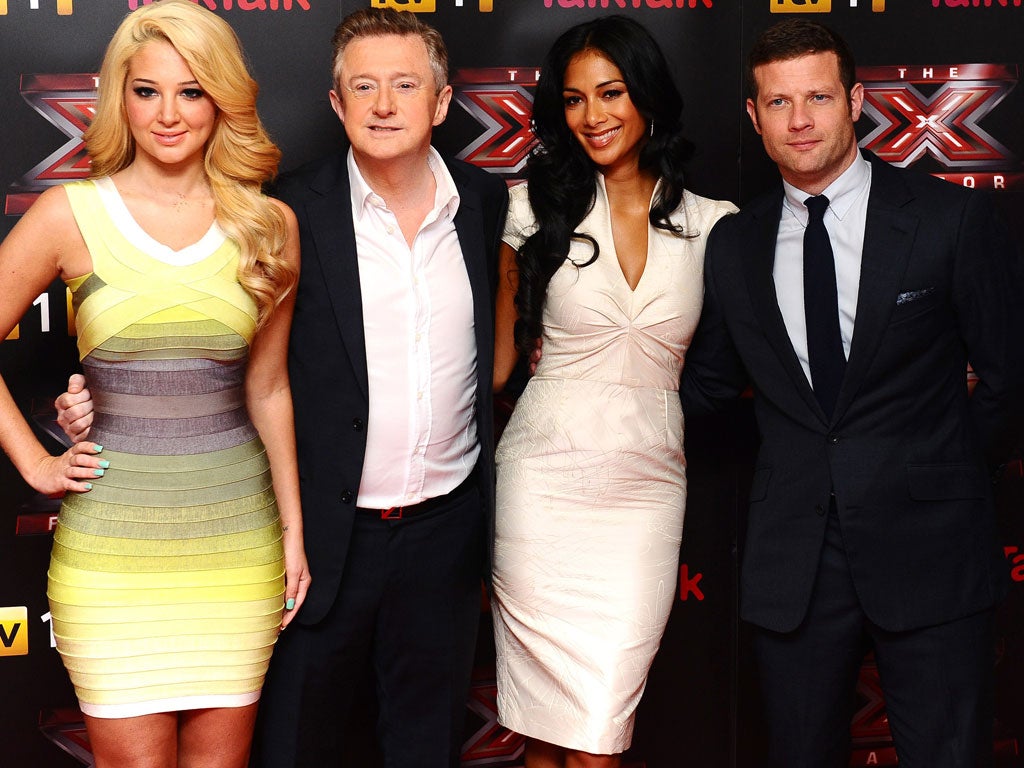Pilloried by Olympians, can The X Factor ever be the same again?
Lord Coe's attack on reality TV has cast a shadow over new series

For Lord Coe, Team GB's Olympic triumph was a victory for humble heroes over a fame-seeking "X Factor culture". Now Simon Cowell's talent show is back, with a mission to convince viewers that its instant stars are worth celebrating as much as Mo Farah.
Britain's most popular entertainment series returns to ITV1 on Saturday night, promising to uncover a "world-class artist". But the show is not quite the television phenomenon it once was. Last year's final, which followed the departure of Cheryl Cole and Cowell as judges, was watched by four million fewer viewers than last episode in 2010.
And the ninth series of The X Factor has a further hurdle to jump after Lord Coe, the chairman of the London Organising Committee of the Olympic Games, claimed that the dominance of television talent shows could cost Britain further Olympic glory.
"I don't decry all reality TV," he said. "It identifies talent, but it encourages people to think you can be a celebrity in six hours. I joined an athletics club when I was 11 years old and didn't get to the Olympics until I was 23. We have to be careful we don't create a celebrity-driven culture where young people think it is better to be famous for nothing than be anonymous for doing something creative."
The X Factor's producers reject the claim that their show simply gives exposure to fame-seekers. A source said: "The people who want to be famous are weeded out early on. We've uncovered international stars like Leona Lewis. They have real talent, longevity and work just as hard as athletes do, in their own field."
The new series, which adds the former Pussycat Doll Nicole Scherzinger to the judging line-up, hopes to tap into the Olympic feelgood factor. "The Olympics showed we have some amazing talent," said Gary Barlow in an excerpt from the programme screened yesterday. "I know there's a new British star out there and it's our job to find them."
The show hopes to enhance its musical credibility by encouraging more contestants to sing their own songs rather than just perform covers. Entrants are also now allowed to have a management deal.
"People are getting out guitars and writing their own songs," said the former N-Dubz singer Tulisa Contostavlos at yesterday's launch event at the Corinthia Hotel in London. She insisted The X Factor was not on the slide. "When you have millions of viewers and the figure goes up or down a million, it doesn't mean the show is in crisis."
Subscribe to Independent Premium to bookmark this article
Want to bookmark your favourite articles and stories to read or reference later? Start your Independent Premium subscription today.

Join our commenting forum
Join thought-provoking conversations, follow other Independent readers and see their replies